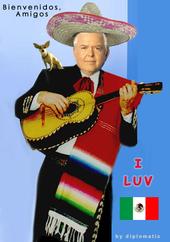↑ Grab this Headline Animator
DREAM ACT8 U.S.C. § 1325 (2000) declares an alien’s unsanctioned entry into the United States to be a crime. While Congress has criminalized illegal entry into this country, it has not made the continued presence of an illegal alien in the United States a crime unless the illegal alien has previously been deported and has again entered this country illegally. 8 U.S.C. § 1326 (2000) makes it a felony for an alien who has been deported to thereafter reenter the United States or at anytime thereafter be found in the United States.
Those persons who enter this country illegally are subject to deportation. 8 U.S.C. § 1227 (2000). Deportation may be based upon any number of factors, including the alien’s initial entry into this country contrary to law or acts while in this country, such as the commission of certain crimes. However, while an illegal alien is subject to deportation, that person’s ongoing presence in the United States in and of itself is not a crime [***3] unless that person had been previously deported and regained illegal entry into this country.
THE MERE PRESENCE OF AN UNDOCUMENTED IMMIGRANT IN THE USA DOES NOT MAKE A PERSON"ILLEGAL."
NO HUMAN IS ILLEGAL
I was born in the area where the University of Illinois-Chicago Campus now stands. In 1963 the city demolished our neighborhood and we moved to the mostly Polish Pilsen neighborhood. I was entering 2nd grade.
It was a different time when people easily distrusted and disliked those with differences. Has anything really changed?
The nuns at St. Vitus School, on 18th Place and Paulina, made the Mexican kids in our class sit in the back row. We were not allowed to participate in class with the White kids. The White kids had the power and authority to discipline us whenever they caught us talking. They did the job well too.
I can remember adults calling me Spic and my school mates telling me that my Brown was dirt. I recall rushing home from school and scrubbing my skin until it hurt. The brown “dirt†would not wash away. We were conditioned well.
In about five years Pilsen had turned into a mostly Mexican neighborhood. It was a fun and exciting place to grow up in. The education on the street was better than the one inside the institution. It was more real and applicable for our existence. It is this sense of Chicago that stays with me-the “street smarts†that one must absorb at an early age in order not to get swallowed by the great cold whale called the streets.
My mother tried raising seven children by herself. My dad flew away to Mexico to find another bird to mate with. Basically, we grew up. There was little nurturing. There was little refinement. Surprisingly, I had All-American Dreams of going to college, becoming a journalist, marrying and raising a family, and living a middle-class life. I did not understand that for many Chicano kids in Pilsen that it was only the Great American Wet Dream that was teasing us and controlling us. The opportunities were there. The obstacles were there too. Once one is enrolled in street school it is hard to drop out.
I formed a street gang, THE TOKERS, in 1974. We were small in number. At the most we had about 25 members and some hang-ons. I have seen people shot and killed over colors, as if we could somehow own spectrums of the rainbow, and I have seen others killed over territory that never was ours to begin or end with. The most insecure became the most violent. There was status in toughness. Toughness was most valued.
Yet, here I am in Utah. I am a man who survived craziness and was formed by the same craziness. The canyons in my mind were shaped by the power of my street experiences. I recently earned a Master’s Degree in Social Work at the University of Utah. I hope to use the varied experiences of my life to connect with those who are marginalized, minimized, oppressed, and just plainly screwed over.
